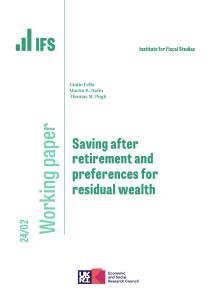The UK has enacted a number of reforms to the structure of disability benefits that has made it a major case study for other countries thinking of reform. The introduction of Incapacity Benefit in 1995 coincided with a strong decline in disability benefit expenditure, reversing previous sharp increases. From 2008 the replacement of Incapacity Benefit with Employment and Support Allowance was intended to reduce spending further. We bring together administrative and survey data over the period and highlight key differences in receipt of disability benefits by age, sex, and health. These disability benefit reforms and the trends in receipt are also put into the context of broader trends in health and employment by education and sex. We document a growing proportion of claimants in any age group with mental and behavioral disorders as their principal health condition. We also show the decline in the number of older working age men receiving disability benefits to have been partially offset by growth in the number of younger women receiving these benefits. We speculate on the impact of disability reforms on employment.










